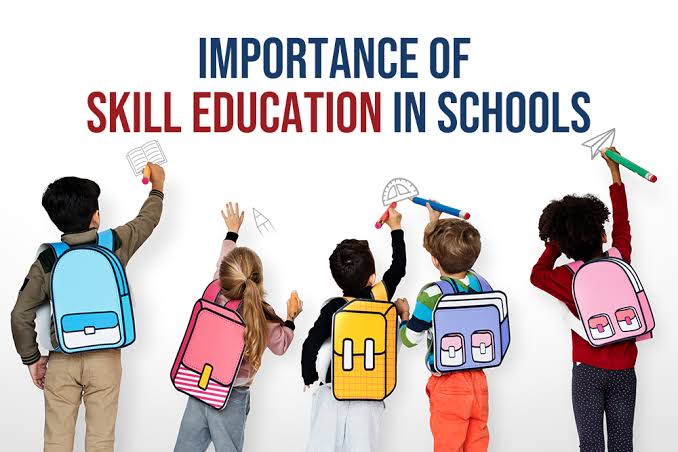Discover the importance of soft skills development in Nigerian schools. Learn how fostering communication, teamwork, and leadership can enhance academic performance, career readiness, and personal growth. Explore strategies for integrating soft skills into the curriculum and creating a supportive learning environment.
In the changing world of education there is a growing focus on nurturing skills globally. Nigerian schools are starting to acknowledge the significance of cultivating these skills not in equipping students, for achievements but also in preparing them for meaningful engagement in the workplace and society. This article delves into the significance of developing skills in Nigerian schools the advantages it offers and approaches to incorporating these skills into the curriculum.
**Understanding Soft Skills**
Soft skills, commonly known as skills or interpersonal abilities, include a range of qualities that promote effective communication, teamwork and problem solving. Unlike skills that are specific to a job soft skills are relevant in settings and professions. Some important soft skills are communication, collaboration, leadership, flexibility, analytical thinking and emotional awareness.
**The Importance of Skills in Nigerian Education**
With Nigerias progress, both economically and socially there is a growing recognition of the need for a workforce that possesses skills. Today's job market not requires knowledge but also the capacity to collaborate effectively, tackle challenges and adapt to changing circumstances. By developing these skills Nigerian students can greatly improve their career opportunities and personal growth.
In addition soft skills play a role, in individual development and community bonding. Abilities like understanding, emotional awareness and strong communication are essential for establishing connections and nurturing a community. By incorporating the cultivation of skills into the curriculum Nigerian schools can assist students in managing interactions and cultivating a sense of accountability and moral conduct.
**Benefits of Soft Skills Development**
1. Enhanced Academic Performance
Studies indicate that students who cultivate soft skills tend to excel, in their studies. Abilities like managing time, staying organized and setting goals play a role in fostering effective study routines and achieving academic success. Moreover possessing communication skills fosters interactions, with both educators and fellow students enriching the educational journey.
2. Improved Career Readiness
Integrating skills into the curriculum helps students get ready, for the challenges of todays job market. Employers appreciate applicants who showcase communication skills, the ability to solve problems and flexibility. By emphasizing the growth of skills Nigerian educational institutions can better prepare students to fulfill these requirements and succeed, in their professional journeys.
3. Strengthened Personal Relationships
Soft skills play a role, in nurturing and sustaining strong bonds. Traits like compassion, attentive listening and resolving conflicts enhance communication and empathy in both personal and work settings. By prioritizing these skills within the curriculum Nigerian educational institutions can assist students in cultivating genuine and caring connections.
4. Increased Self-Esteem and Confidence
Enhancing students soft skills can enhance their self confidence and self worth. As students improve in areas like communication, teamwork and critical thinking they experience a sense of achievement that boosts their self esteem. This newfound confidence can have a positive effect on their academic success and overall well being.
**Integrating Soft Skills Into Education**
To effectively nurture skills in Nigerian schools its crucial to incorporate them into the curriculum and school atmosphere. Here are some approaches to achieve this integration.
1. Blend Soft Skills Training Into Lesson Plans.
Educators can integrate soft skills training into their lesson plans by including activities and projects that promote collaboration, communication and problem solving. Group tasks, presentations and discussions serve as ways to encourage students to practice and develop these skills.
2. Offer Extracurricular Activities
Extracurricular activities like clubs, sports and community service offer students a chance to enhance and showcase their skills beyond academics. These engagements promote collaboration, leadership and planning abilities while allowing students to explore their hobbies and interests.
3. Offer Growth Opportunities, for Teachers
Teachers play a role, in nurturing skills. By providing growth opportunities for educators they can be equipped with the necessary tools and methods to effectively teach and demonstrate soft skills. Training sessions and workshops can assist teachers in incorporating skills into their teaching approaches and fostering a learning environment.
4. Promote a Positive School Culture
Fostering an environment in schools that appreciates and acknowledges skills can strengthen their significance and motivate students to develop these abilities. Educational institutions can introduce programs and initiatives that acknowledge and commend students for their accomplishments in areas like leadership, collaboration and effective communication.
5. Engage Parents and Communities
Engaging parents and communities in the process of nurturing skills can boost its impact. Educational institutions can partner with parents and local groups to offer resources, assistance and chances for students to hone and cultivate their interpersonal abilities.
**Challenges and Considerations**
While the advantages of nurturing skills are evident there are obstacles that need to be addressed. Constraints in resources, large student groups and an emphasis on performance can hinder the incorporation of skills into the educational framework. To overcome these challenges educational institutions may need to prioritize the development of skills and seek collaboration from parties such as government bodies, non profit organizations and private sector collaborators.
In summary focusing on skills development is crucial in Nigerias education system. By highlighting the significance of effective communication, teamwork, leadership and other interpersonal abilities schools can better equip students, for excellence, career preparedness and personal advancement. Integrating skills into the curriculum offering training for teachers and promoting a positive school environment are vital measures, to ensure students acquire the necessary skills to succeed in an evolving world.
